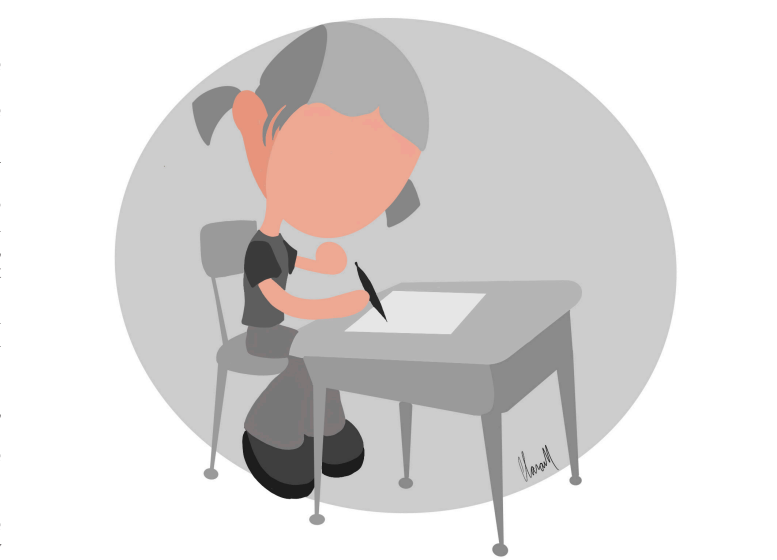As the world continues to struggle with the COVID-19 pandemic, academics, in particular, have suffered greatly under these circumstances. Some of the starkest examples of the impact of the pandemic on education can be seen through the changes to standardized tests, including the IB exams. Last year, these tests were canceled outright in the pandemic’s early stages, including at WIS. While these are difficult circumstances in which to hold these kinds of assessments, IB exams are a vital and necessary component of the curriculum that should be held if possible.
However, as current seniors are looking towards this coming exam season, some schools around the world have already chosen whether or not to hold these exams. Several weeks ago, the International Baccalaureate announced that exams would not be taking place at all in the United Kingdom. Furthermore, in a survey of international schools, the IB found that only 71% of schools, comprising about 61% of total students, believed that they would be able to administer exams in May.
Among international students, there has been a significant degree of controversy over the decision to hold IB exams. An online petition to the IB requesting the cancellation of exams for the classes of 2020 and 2021 received more than 47,000 signatures while another garnered nearly 13,000 signatures.
Attempts to cancel the IB exams have also gained some support from WIS seniors. While there are some solid reasons behind the opposition to holding exams, such as preventing the spread of COVID-19 and the impacts of the pandemic on student’s ability to learn the necessary content, these arguments tend to downplay the importance of the IB exams and the impact of their cancellation.
For many students, IB scores are vital for college admissions, and discrepancies between a student’s predicted grades and their final score prove disastrous. Last year, because no IB exams were held in May, students were given their final grades through an algorithm based on their predicted scores, Internal Assessments (IAs) and other coursework, and historical data from previous examination sessions.
While the algorithm itself has been kept secret by the IB, its impacts on students have been dramatic. Horror stories of students getting final grades significantly lower than their predicted grades abound, with some students receiving scores 12 points lower than they were expected to earn. As a result, many students were unable to meet the requirements for university offers conditional on their IB grades.
The decision as to whether to take the IB exams has profound consequences on all students, particularly given the IB’s stance that exams will be held on a school-by-school basis. Undoubtedly, the exams represent a fairer and more reasonable measure of a student’s academic performance than an opaque algorithmic process.
But if the alternative to taking IB exams seems to have such adverse effects on students and their chances of admission to colleges, why are so many students opposed to taking them? One of the most critical arguments relates to public health and to the potential implications of holding exams on the spread of COVID-19.
Having so many students in one place to take exams does present some degree of risk. Furthermore, it is impossible to predict exactly what the conditions will be like in May, especially with regards to vaccinations and new and more dangerous COVID-19 variants.
While the safety of students and their families must be a top priority, the risk of taking exams does not seem to be that significant. As a senior who recently went to school to do mock exams, I feel that the measures WIS has implemented seem to be working effectively enough, particularly since the school plans to have only seniors and juniors on campus during the first two weeks of exams. However, as the recent COVID-19 cases at WIS have shown, caution should still be exercised when it comes to infections, as the situation can change dramatically in a very short period of time.
Another common concern is that the academic disruptions from COVID-19 will substantially affect students’ ability to perform on the exams. However, it seems like the IB has sought to adapt the exams in light of these disruptions, even removing some exam papers entirely or altering them significantly to reduce the amount of material required to learn.
While each course’s exam has been altered differently by the IB, they seem to be proportionate relative to the effects of the pandemic on the IB curriculum. For example, the experiment-focused Paper III and the Group 4 project have been removed entirely from the natural sciences curriculum. The removal of these exam components is also accompanied by alterations to how the exams are graded by the IB, who have said they may mark more generously than in years past.
Today, the path towards the IB exams remains somewhat unclear. It may be entirely possible, although somewhat unlikely, that the tests are not held for the second year in a row. But as the experiences of the class of 2020 show, the cancellation of these assessments may do more harm than good, particularly for students relying on solid IB scores to get into college.
By Nicolas Greamo





































































